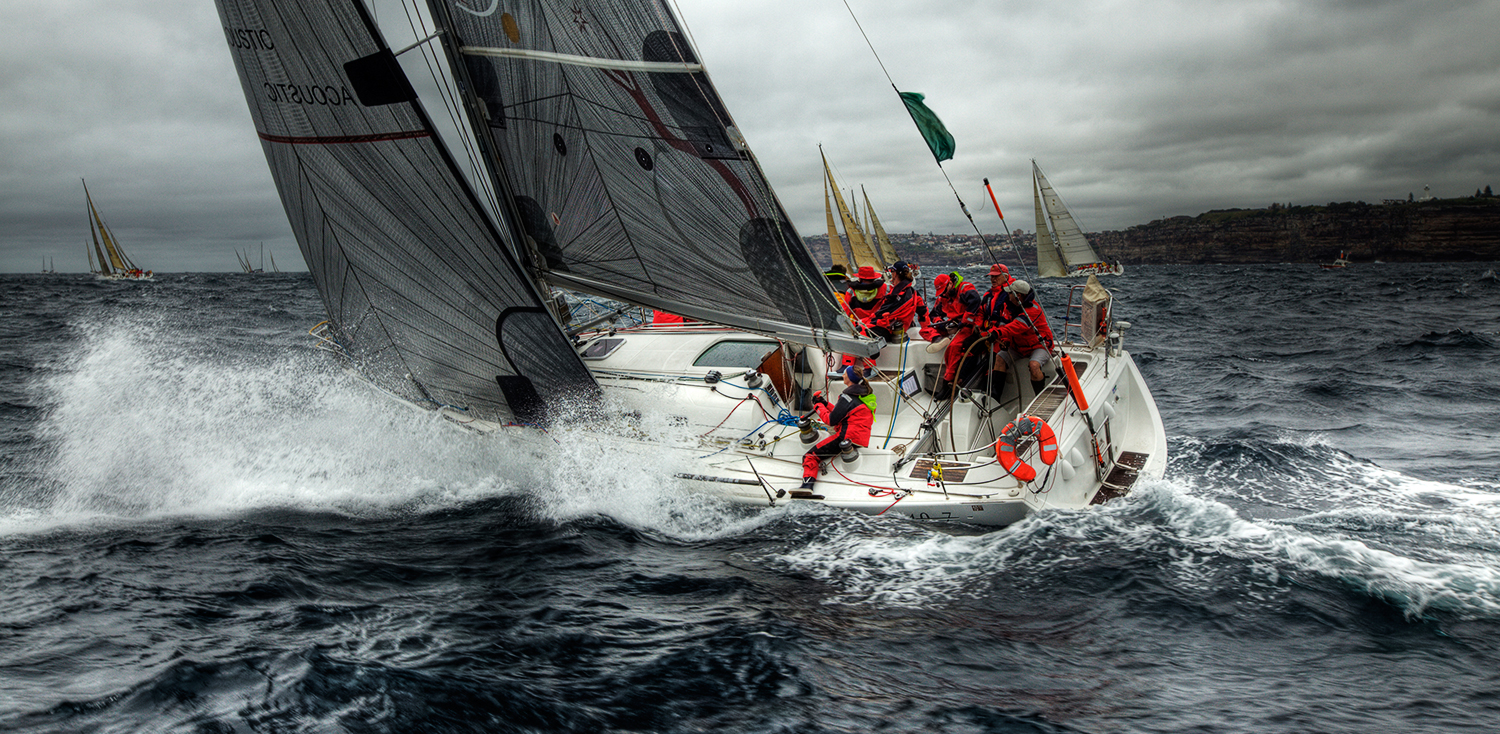When Kirsty Whyte chucked in her day job to go sailing for a year, it wasn’t so she could kick around the Whitsundays or Croatian coast. Instead she paid to be an amateur crew member on board the Spirit of Australia in the Clipper Round the World Yacht race. An event that pairs a professional captain with a rookie team in an eight-leg, 16-race, 40,000-nautical mile epic, the Clipper offers its participants a whole new perspective on what it means to have a sea change.
Starting the race
A casual sailor beforehand, Whyte undertook a month’s training before joining the crew on the Spirit of Australia, quickly establishing herself as a strong and disciplined team member on a boat that would go on to be one of the leaders in the race. But at the fag-end of a brutal winter about 500 nautical miles off the coast of Japan disaster struck, albeit elsewhere. The captain on a competing boat got swept down the deck and broke his leg, maritime law dictating those from the closest vessel – Spirit of Australia – would have to help. The more experienced crew gave up their own skipper to take control of the vessel and then had to shepherd the craft more than 4,000 nautical miles in rough seas to San Francisco. They were then told they’d be ruled out from winning the month-long leg – a withdrawal former banker Whyte didn’t see coming.
There is no hierarchy. When I bring people out on the boat I am the skipper. I pick out volunteers and get them to do different stuff. I will treat the manager the same as the subordinates. It breaks down those barriers.
Training and up-skilling
It should come as little surprise that sailing and the corporate set are so intertwined. Big boats mean big money and it’s not uncommon to see business leaders getting their after-hours kicks on the high seas. But for Tony Legg these not-so-still waters run much deeper than that. Legg runs Docklands Corporate, one of a growing number of companies that specialises in tailor-made sailing activities for businesses. With operations based in Melbourne and Sydney, Legg likes to get people “outside their comfort zones and moving beyond the normal hierarchical situations”.
For Legg it’s less about a competition, which creates winners and losers, and more about training people so they can learn and pass their skills onto others. He says the ‘office’ structure on board is relatively flat, and even the skipper has to know the limitations of his role.
“Part of the thing is they call the shots but they then have to focus on what they are doing and not get involved in other people’s jobs,” he says.
Training the right people
Nicholas Bartels knows the feeling. Managing director of business consulting firm Terra Firma, Bartels has competed in eight Sydney-to-Hobart races and is the skipper of his company’s eponymously named vessel. He takes clients and employees out on his boat for team building.
Bartels says in sailing as in business you should worry about the people and the processes before concerning yourself with the technology. “In a boat or in a company getting the right people in the right roles, it is very similar. When you have the right people you have to train them.”
As it turns out Whyte was very much the right person too. After coming back from her sailing adventure she was again in demand in the finance world but eventually took up “the greatest job in the world” – managing director of the newly formed Australian arm of Clipper Ventures. “I obviously had my background and they were interested in those other skills I could bring. As a manager I improved. I became harder in some aspects and softer in others.”

THE WORLD’S TOUGHEST OCEAN RACES
Sydney to Hobart
The Bluewater Classic is the second race that stops the nation. Now potentially won in less than two days it still represents a stern examination for even the most experienced sailors, the waters off Bass Strait proving the most fickle of taskmasters.
Volvo Ocean Race
A brutal test of teamwork, tactics and tenacity with teams of nine professional sailors pitted against each other in a multi-leg round-the-world race. It can take over nine months to complete and the only prize is the pride of competing.
Clipper Round the World Race
Amateur crew members sail with professional captains in identical boats in an event which has a steep learning curve. Participants can sign-on for individual legs or the full race.
Vendée Globe
Arguably the toughest of them all. Sailed single-handedly, non-stop and without assistance, this round-the-world race is only contested every four years. In many races more than half the field fail to finish.
Fastnet Race
The biennial event is in many ways the British equivalent of the Sydney to Hobart. The 608 nautical mile race is contested in a loop from England to Ireland in often brutal westerlies. Eighteen people were tragically killed in the 1979 race.



